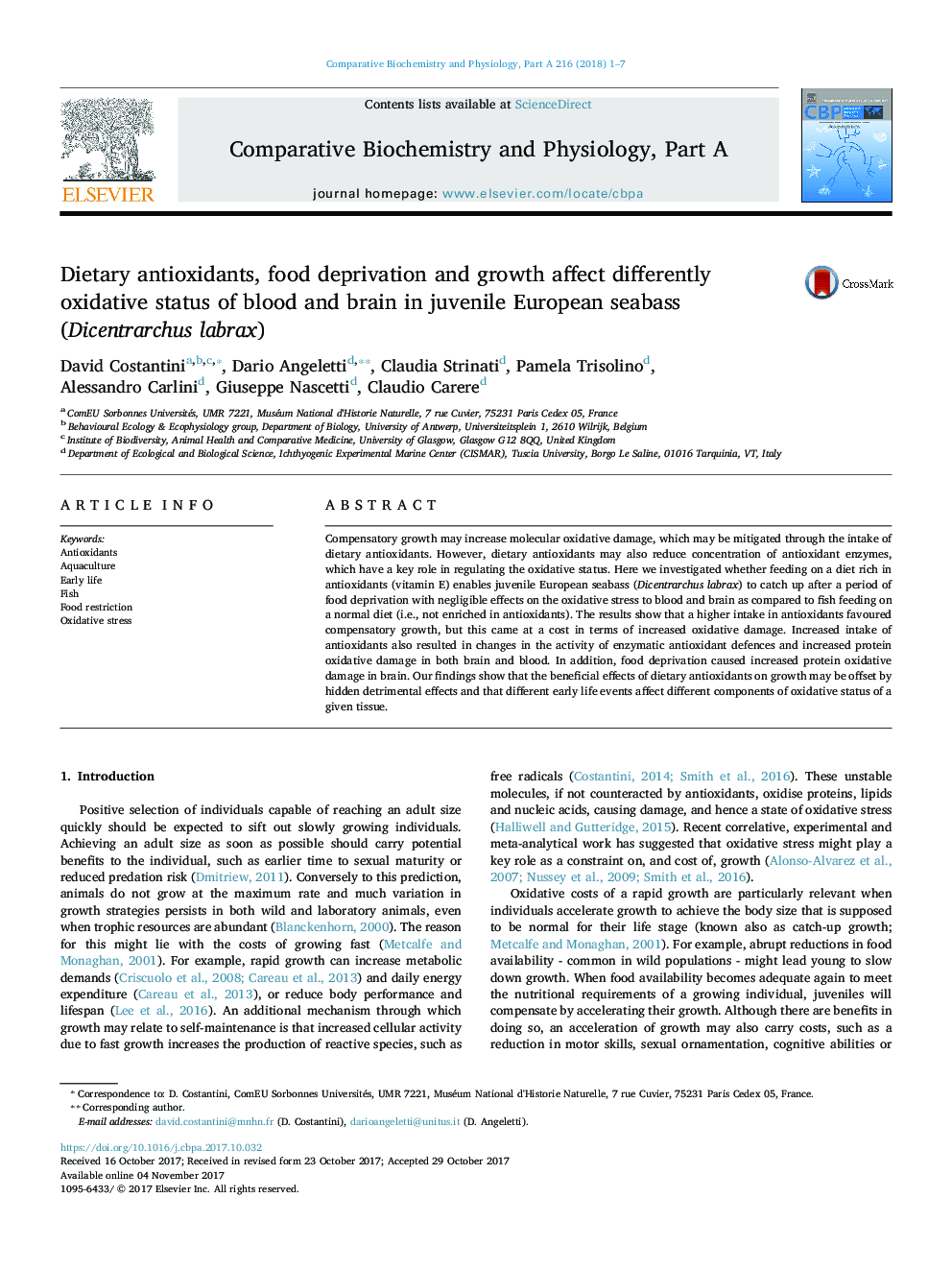| Article ID | Journal | Published Year | Pages | File Type |
|---|---|---|---|---|
| 8318314 | Comparative Biochemistry and Physiology Part A: Molecular & Integrative Physiology | 2018 | 7 Pages |
Abstract
Compensatory growth may increase molecular oxidative damage, which may be mitigated through the intake of dietary antioxidants. However, dietary antioxidants may also reduce concentration of antioxidant enzymes, which have a key role in regulating the oxidative status. Here we investigated whether feeding on a diet rich in antioxidants (vitamin E) enables juvenile European seabass (Dicentrarchus labrax) to catch up after a period of food deprivation with negligible effects on the oxidative stress to blood and brain as compared to fish feeding on a normal diet (i.e., not enriched in antioxidants). The results show that a higher intake in antioxidants favoured compensatory growth, but this came at a cost in terms of increased oxidative damage. Increased intake of antioxidants also resulted in changes in the activity of enzymatic antioxidant defences and increased protein oxidative damage in both brain and blood. In addition, food deprivation caused increased protein oxidative damage in brain. Our findings show that the beneficial effects of dietary antioxidants on growth may be offset by hidden detrimental effects and that different early life events affect different components of oxidative status of a given tissue.
Related Topics
Life Sciences
Biochemistry, Genetics and Molecular Biology
Biochemistry
Authors
David Costantini, Dario Angeletti, Claudia Strinati, Pamela Trisolino, Alessandro Carlini, Giuseppe Nascetti, Claudio Carere,
